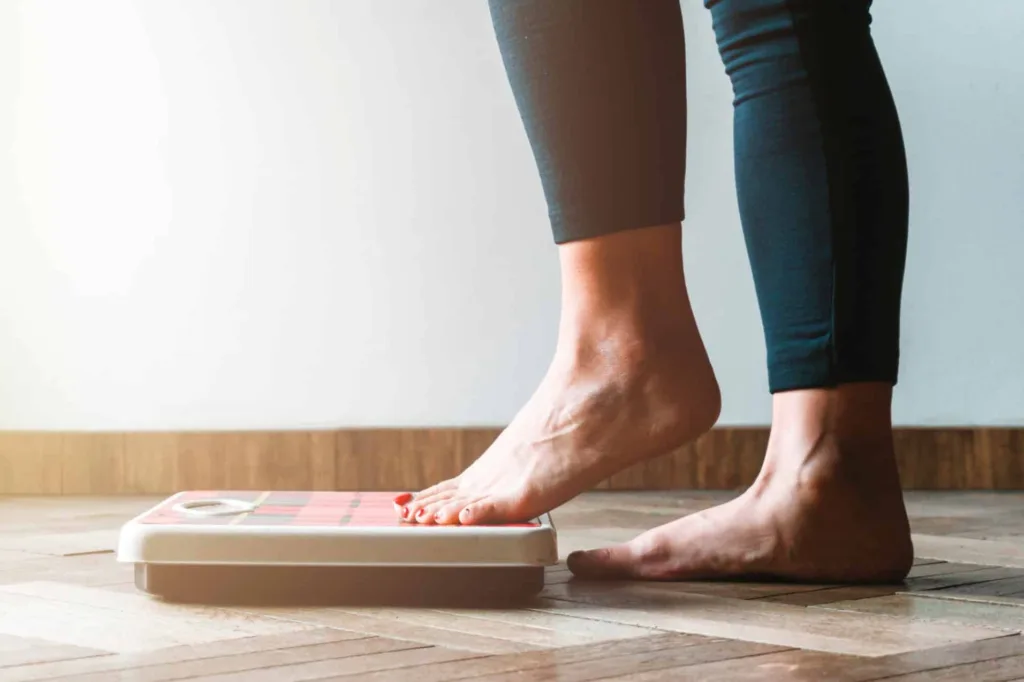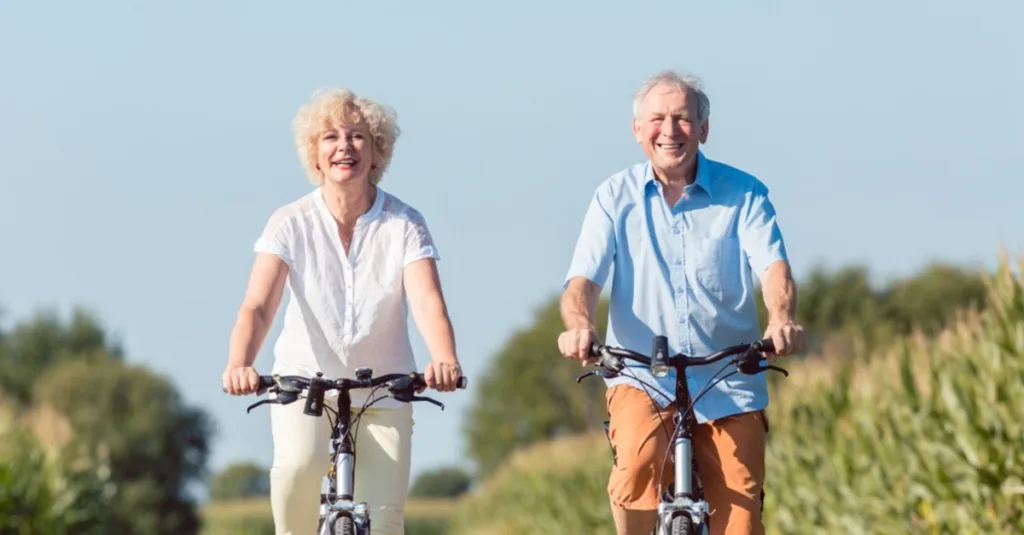The journey of healthy aging can present various challenges, especially regarding weight management. However, the right resources and support system make it possible to embrace wellness in our later years. Senior weight loss clinics provide personalized guidance to losing weight safely, while prioritizing overall health for a graceful aging process.

Introduction
As we grow older, changes in hormone levels, metabolism, bone and muscle mass make it more difficult to maintain a healthy weight. However, excess weight in seniors poses an increased risk for various health issues like heart disease, diabetes, arthritis, respiratory problems and even cognitive decline.
Fortunately, senior weight loss clinics offer customized programs to promote safe, gradual weight loss for better health in our golden years. This article will cover the science behind age-related weight gain, the benefits of specialized senior weight loss clinics, and expert tips to gracefully achieve wellness goals after 50.
The Science Behind Senior Weight Gain
It’s important to understand the key drivers of age-related weight gain in order to tackle it effectively. Three primary factors make losing extra pounds more challenging as we age:
Slower Metabolism
Our basal metabolic rate, which accounts for 50-70% of burned calories, declines 2% per decade after age 30 due to loss of muscle mass and hormone changes. This translates into over 100 fewer calories burned daily in our 60s compared to our 20s. A personalized nutrition plan can help counteract a slower metabolism.
Hormonal Changes
Hormones like estrogen, testosterone, DHEA and growth hormones peak around age 25 then steadily decline. In women, menopause accelerates this drop. Such hormonal shifts slow down calorie burning while increasing body fat storage around the abdomen. It’s essential to be aware of these influences when creating senior diet strategies.

Decreased Muscle Mass
We lose nearly 8% of muscle mass per decade after turning 50, largely due to declining hormones like estrogen, testosterone and human growth hormone. Since lean muscle burns more calories than fat even at rest, having less muscle decreases our resting metabolism. Incorporating resistance training helps offset this age-related muscle loss.
These three factors interact to create a “perfect storm” for weight gain in older adults. Fortunately, an understanding of the science equips us to make positive lifestyle changes. Senior weight loss clinics base their customized programs upon staying informed about common health changes associated with aging.
Root Causes of Senior Weight Gain
In addition to biological factors, certain lifestyle patterns and thought processes promote creeping weight gain over 50:
- Decreased activity levels – Chronic conditions like arthritis may limit mobility. Retirement can also contribute to more sedentary routines. However, physical activity remains essential for senior health.
- Side effects of medication – Some prescriptions, like steroids or antidepressants, list weight gain as a common side effect. Doctors should explore alternative meds less prone to this issue.
- Loss and grief – The death of loved ones, career changes or empty nests deeply impact us. Counseling helps overcome emotional eating triggers.
- Disrupted sleep patterns – Seniors average 20-30% less deep sleep versus younger adults, impeding weight control. Establishing healthy sleep hygiene gets metabolism back on track.
- Chronic stress – Persistent high cortisol levels stimulate visceral fat accumulation and drive weight gain over 50. Relaxation techniques build resilience.
- Mental overload – Decision fatigue leads to poor food choices for seniors balancing medical care, financial planning and family needs. Simplify commitments to minimize stress.
This mix of physiological changes and associated lifestyle factors contribute to expanding waistlines after 50. But the solution lies in acknowledging these health influences and adapting behaviors accordingly with compassionate support.

Benefits of Senior Weight Loss Clinics
Specialized senior weight loss clinics acknowledge the unique challenges faced when losing weight after 50. They offer safe, tailored programs to help older adults achieve their wellness goals. Some key advantages include:
Personalized Plans for Mature Individuals
Generic diet plans rarely account for slower metabolisms, changes in taste buds, medication interactions, or health issues like arthritis that commonly affect seniors. Customized senior weight loss programs, like those at age-specific clinics, provide meal plans based on each person’s needs and abilities. This empowers sustainable lifestyle tweaks.
Trained Professionals Specializing in Senior Health
The right guidance makes all the difference in sustainable weight loss over 50. Senior weight loss clinics have nurses, nutritionists and trainers who deeply understand the aging process. They offer evidence-based advice to suit mature individuals’ health statuses and abilities levels. Their expertise lends confidence in recommended protocols.
Holistic Approach Addressing Physical and Mental Well-Being
Weight gain in seniors frequently involves psychological elements like grief, boredom, anxiety or depression. Age-specific weight loss clinics don’t solely focus on food and exercise. They also provide counseling, community support groups and stress-reduction techniques. This acknowledgment of mental health bolsters the likelihood of long-term success.
Safe, Medically-Supervised Weight Loss Programs
Crash dieting can be extremely harmful for older bodies. Senior weight loss clinics prioritize gradual, healthy protocols with medical supervision. This ensures nutrition adequacy and accountability without adverse side effects. Doctors monitor key indicators like blood pressure, blood sugar and electrolyte balance.
Ongoing Education and Motivation
Senior weight loss clinics offer classes on relevant health topics like joint protection during workouts, nutritious cooking for one or two, and myth-busting fad diet claims. They also provide encouragement to stay the course when motivation lags. Both ongoing education and community support empower seniors to stick to personalized plans.
Access to Additional Specialists
Reputable senior weight loss clinics have strong professional networks beyond just nurses and dietitians. They can refer clients to physical therapists, psychologists, sleep medicine experts and more as needed on an ongoing basis. This continuity of care helps seniors achieve goals.

6 Tips for Successful Senior Weight Loss
Experts from senior weight loss clinics share proven insider tips to effectively yet safely manage weight after 50:
- Incorporate Low-Impact Exercises
While strength training is invaluable for maintaining muscle mass, low-impact activities like walking, swimming and chair yoga better suit mature joints. Aim for 150 minutes per week. Water workouts are especially beneficial. They burn calories without high-impact and also aid flexibility. Consider working with a personal trainer familiar with senior programming.
- Mindful Eating Habits
Quality nutrition is key, but restrictive diets typically backfire in seniors. Eat slowly to allow satiety signals to kick in, choose whole foods over processed items and hydrate with water. Avoid skipping meals, which can prompt overeating later and slow metabolism. Savor and appreciate every nourishing bite as self-care.
- Stay Hydrated
Decreased muscle mass, certain medications and impaired thirst signals can result in dehydration, which causes water retention and metabolic slowdown. Sip fluids regularly, even when not thirsty. For variety, enjoy herbal tea, sparkling water or diluted fruit juice. Soups and fruits also boost fluid intake. Infuse ice water with fruits and herbs for extra flavor.
- Prioritize Quality Sleep
Research shows losing just 16 minutes of nightly sleep doubles weight gain risk in mature adults. Lack of quality sleep disrupts hormones regulating hunger and fat storage. Maintaining a consistent bedtime, limiting caffeine and creating an optimal sleep environment are imperative. Consider blackout curtains, white noise, temperature regulation and other sleep hygiene strategies.
- Manage Stress
The stress hormone cortisol prompts fat accumulation around organs, which is linked to various senior health issues. Make time for stress relievers like meditation, massage, nature walks and social interaction. Gardening, art and volunteering can also lower anxiety levels to aid weight loss. Avoid multitasking around mealtimes, focusing just on eating for now.
- Regular Check-ins with Healthcare Professionals
Schedule appointments with your doctor, nurse practitioner or clinic dietitian every month or two when losing weight over 50. They can monitor progress, provide accountability, adjust medications and ensure nutritional adequacy.
Weight loss later in life demands a watchful medical support system for sustainability. Don’t be afraid to ask questions or bring up challenges.

Lifestyle Tweaks for Lasting Success
Meaningful change occurs incrementally through small but consistent shifts in daily choices:
• Park farther out and walk the extra distance whenever running errands
• Get up every 30 minutes to march in place or stretch gently
• Portion out treats or snacks to enjoy mindfully when intense cravings strike
• Buy colorful veggies and fruits over processed convenience items
• Batch prepare healthy soups, whole grains and lean proteins for quick meals
• Savor wine or cocktails once a week at most; swap in herbal teas, sparkling waters or black coffee
Remain patient, flexible and kind towards yourself throughout the journey of healthy aging. Our bodies gracefully change as our souls gain rich perspective – this beauty deserves reverence. Prioritize self-care with the same loving wisdom bestowed upon beloved grandchildren.
Real-Life Success: Mary’s Story
Mary, a 69-year old teaching assistant, struggled to manage her type 2 diabetes and advancing arthritis pain after retiring two years ago. Weighing 205 pounds, Mary’s lack of mobility and chronic health conditions severely impacted her quality of life. On her daughter’s recommendation, she joined a senior weight loss clinic.
Over 18 months, Mary lost 35 pounds via a Mediterranean-style meal plan and chair yoga regimen while attending counseling for grief after losing her husband.
She also connected to new friends at the clinic’s walking club and cooking classes. For the first time in years, Mary moves through her days pain-free and full of gratitude for reclaiming wellness in her later years.
Mary’s uplifting story illustrates that it is truly never too late to take control of health. Even small consistent efforts eventually create profound transformation.
Prioritize self-care practices in this season of life – you deserve to finish strong! If interested to learn more weight loss tips for seniors or join an empowering community, subscribe to our newsletter using the form below.
Thank you for reading this post, don't forget to subscribe to our free newsletter
!

